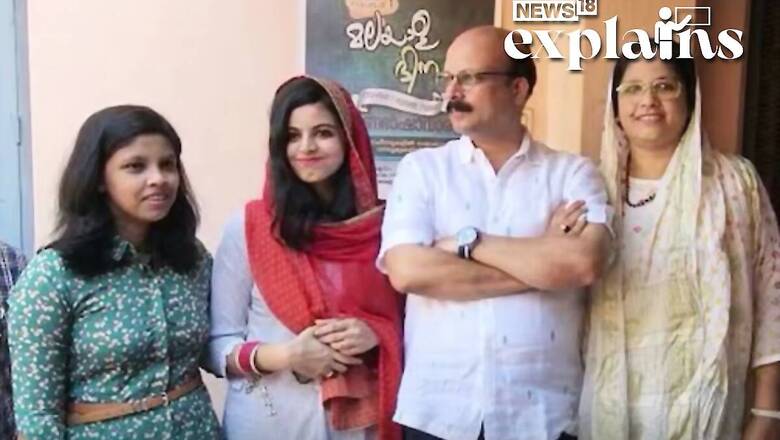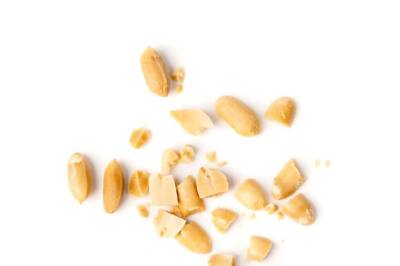
views
A Muslim couple in Kerala’s Kasargod renewed their vows after 29 years of their first marriage under the secular Special Marriage Act, to ensure their daughters became their legal heirs under the law. Advocate and actor C Shukkur and his partner Sheena, former Pro-Vice Chancellor of Mahatma Gandhi University, registered their marriage on Wednesday, on the occasion of International Women’s Day, with their daughters as witness. READ MORE on this here
The couple has said they took the action to ensure their inheritance would not be split under the Shariat legal code. They wanted their three daughters to become their legal heirs as per civil law. The news has ignited a debate on the need for Uniform Civil Code (UCC), and inheritance rights of women under Muslim codes.
“Registering our marriage under the Special Marriage Act is the only way we can ensure our three daughters are not humiliated after we are gone,” Shukkur told Onmanorama.
How Do Muslim Inheritance Laws Work?
The Muslim Personal Law (Shariat) Application Act, 1937 governs inheritance for Muslims in India, explains a report by Indian Express. This Shariat-compliant regulation recognises two types of legal heirs: sharers and residuaries. As per the report, there are twelve categories of legal heirs who get a share in the inheritance: (1) Husband, (2) Wife, (3) Daughter, (4) Daughter of a son (or son’s son or son’s son and so on), (5) Father, (6) Paternal Grandfather, (7) Mother, (8) Grandmother on the male line, (9) Full sister (10) Consanguine sister (11) Uterine sister, and (12) Uterine brother.
Aunts, uncles, nieces, nephews, and other distant relatives might be residuary heirs. The value of their share is determined by a number of factors, the report says.
Under certain circumstances, each sharer’s share will differ. For example, a woman receives a quarter part if the pair has no lineal descendants, and a one-eighth portion otherwise. In the case of succession to the wife’s estate, a husband receives a half portion if the pair has no lineal descendants, and a one-fourth share otherwise. A single daughter receives half of the inheritance. Where the deceased has more than one daughter, all daughters share two-thirds.
If the deceased left behind son(s) and daughter(s), the daughters cease to be sharers and become residuaries, with the remainder allocated so that each son receives double what each daughter receives.
And according to Shariat law, only one-third of an estate can be willed to anyone. The remainder will have to be split in accordance with the intricate religious legislation. As a result, under Islamic law, a Muslim marriage cannot make someone their only heir.
Why Special Marriage Act?
According to the Onmanorama report, the Shukkurs are among the growing number of Muslim couples who are opting for the secular Special Marriage Act in order to avoid the Muslim Law of Inheritance, which is based on Shariah Law principles and oversees the division of a deceased person’s possessions among their heirs. It is widely regarded as discriminatory against women because it gives them a smaller portion of inheritance than male heirs, who could also include paternal uncles or their sons.
The Muslim Law of Inheritance also compels women to obtain the agreement of male relatives, often distant cousins, in order to claim the insured money following the death of their spouses in a car accident or to seek government compensation following a natural disaster, the report says, adding that as per activists, women often do not get consent until they agree to divide the money or asset with their family.
Section 15 of the SMA allows any marriage that is not performed in accordance with the provisions of the Special Marriage Act to be registered under the Act. The registration of the marriage under SMA means that the couple is now subject to secular law, and the Indian Succession Act governs inheritance.
Ripples
Meanwhile, the Council for Fatwa and Research, Darul Huda Islamic University reacted to the development, criticising the Shukkurs’ action, as per a report by Mathrubhumi.
“There is no law against handing over all their wealth to children when they are alive. The personal law matters only for inheritance. Those who believe in God and accept his wholeness will have no qualms about it. They will not have the obstinate greed that their wealth must go to their children,” the council said.
“As per the Muslim Personal Law, if the deceased father has only girl children, they will get only two-thirds of his wealth. The rest will go to the siblings of the father… The inheritance law in Islam ensures fair redistribution of wealth upon the death of a person. Relationships, requirements of the dependents, and the responsibilities are considered for the purposes. The real believers will not be wooed by these greedy actions (the marriage of Shukkurs),” it read, according to the report.
Reacting to the council’s statement, advocate Shukkur said if an ‘attack happened to him the onus would be on those who exhorted for it’. He further said he had not insulted any religious tenets are turned against any religion, adding that there was no room for any action against him.
Read all the Latest Explainers here



















Comments
0 comment